In Illinois, a squatter is someone who occupies a property without having any legal right to it. While there are different definitions of this term, in general, a squatter is defined as a person who is living on or using the land of another person without permission or legal authority.
Squatters may be individuals, families or groups of people who have taken up residence on the land without permission from the rightful owner. In some cases, squatters are found to be long-term occupants - even though they do not have a lease agreement with the owner.
It is important for landlords to understand how squatters are defined in Illinois law and what steps can be taken to protect their rights as owners of the property.
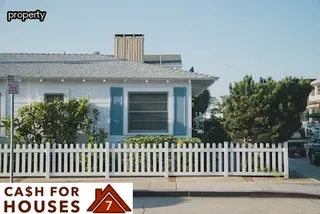
Adverse possession is a legal process that grants property ownership to an individual who has been in continuous, open and notorious possession of the land for a certain amount of time. This type of possession is sometimes referred to as squatter's rights.
In Illinois, adverse possession requires seven years of uninterrupted occupancy or 20 years if the claim is made against the government. To obtain title through adverse possession, there are specific elements that must be proven including that the occupation was actual, open and notorious, exclusive, hostile and continuous over the specified statutory period.
Actual occupancy implies physical presence on the property while open and notorious means that the occupant’s use of the land must be visible to anyone who takes reasonable steps to discover it. The claimant must also prove exclusive occupancy which means no other person claiming an interest in the land can use it during this period.
Lastly, hostile simply means that occupier’s actions must be inconsistent with any current owner’s title or right to possession; however, payment of taxes does not constitute hostility. Landlords should know about these laws in order to protect their interests and understand how they may affect tenants living on their properties.
It is important for landlords in Illinois to understand the limitations of adverse possession claims when they are dealing with squatters. In Illinois, the law has been established that a squatter can acquire title to land if they have been living on it without the owner's permission for twenty years or more.
This means that squatters may have rights to some properties in Illinois and landlords should be aware of this. In order for a squatter to claim title to land, they must possess it openly and adversely for twenty years and prove that they have paid all taxes due on the property during that time.
They must also show that they used the property as if it were their own and not just as an occasional visitor or camp site. Additionally, they must demonstrate that the true owner was aware of their presence yet did nothing to stop them from occupying the land.
The court may also consider other factors such as whether or not improvements were made to the land by either party prior to the claimant asserting his or her rights. If all conditions are met, a squatter can gain legal title to a parcel in Illinois even if there is an existing deed holder on record.

When exploring the squatter's rights in Illinois, landlords should be aware of color of title claims. This is when a person has been occupying a property for long enough that they can claim ownership, even if they don't have legal documents to prove it.
In such cases, the squatter can take legal action against the landlord and make a claim on their property. To protect themselves from this happening, landlords must be sure to check the title of any property they are looking to purchase or rent out.
Landlords should also be aware that squatters may attempt to gain access to the property through verbal agreements or other means which can still give them certain rights over the land. It is important for landlords to understand what rights are being granted and how they could potentially affect them.
It is also important for landlords to take steps to prevent squatters from gaining access in the first place by having proper documentation and appropriate security measures in place.
Property ownership can be a complex issue, and one of the most difficult aspects is understanding the impact of squatters’ rights in Illinois. In the state, a squatter can gain legal possession of property through adverse possession laws if they have continuously occupied it for 20 years or more.
This means that a landlord may find themselves in the position of not having legal title to their own property if they haven’t taken action to protect it. Unfortunately, squatters are increasingly taking advantage of this law to gain access to properties they don’t own.
It is important for landlords to be aware of their rights and take proactive steps to protect their property from unwanted occupants. This includes ensuring that all relevant paperwork is up-to-date and properly filed with local authorities so that any claims from squatters can be challenged legally.
Landlords should also stay informed about changes in local laws related to squatting so that they can respond quickly and effectively if a squatter attempts to establish an adverse possession claim on their property.
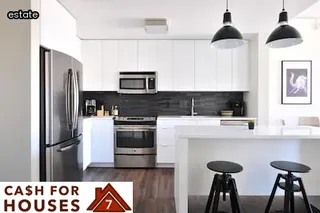
Squatters in Illinois can legally remain on a property without paying rent or taxes, but landlords should be aware of the potential financial implications this could have for them. Property taxes are typically paid by landowners, and if a squatter is present, the landlord may still be responsible for paying these taxes, even if they do not have access to the property.
In some cases, squatters may also be able to claim a homestead exemption on the property, which would reduce their tax burden. Landlords should understand the laws surrounding squatter's rights in order to avoid any unexpected tax liabilities.
Additionally, it’s important to note that with squatters present on a property, it can be difficult for a landlord to gain access in order to perform necessary repairs or renovations as needed. Understanding how squatters will impact your responsibilities as a landlord is key when it comes to protecting your investment and keeping up with your obligations.
Removing squatters from a property in Illinois can be a difficult process for landlords. As a landlord, it is important to understand the legal rights and obligations of both yourself and the squatter.
In Illinois, there are several steps that must be taken in order to remove squatters from a property lawfully. First, landlords must provide written notice to the squatter by either posting it on the door or delivering it in person.
This notice should inform the squatter that they must vacate the premises within 10 days or face legal action. If after this time elapses and the squatter has not vacated the premises, then landlords may choose to file an eviction lawsuit in court.
The court will review all evidence provided by both sides and make a ruling based on their findings. After a judgement is made, landlords may proceed with taking further steps such as sending sheriffs to remove any remaining persons from the property.
Understanding these steps can help ensure that landlords are able to remove squatters legally and without issue.
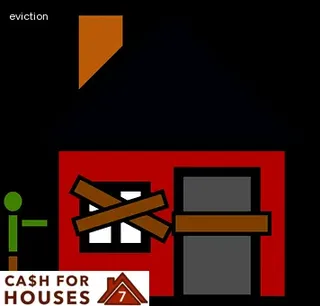
When it comes to evicting squatters, the laws vary from state to state. In Illinois, landlords should be aware of the specifics of the law in order to properly handle a squatter situation.
For example, some states do not recognize squatters as tenants, meaning they are not entitled to the same protections that tenants have under the law. In Illinois, however, squatters may be considered tenants if they have been living in a property for an extended period of time and paying rent or services in exchange for occupancy.
As such, landlords must go through specific legal channels when attempting to evict a squatter, such as filing an action for unlawful detainer and serving notice on the occupant before moving forward with any other proceedings. Furthermore, each state has different regulations regarding how long an individual can occupy a property without permission from the owner before they are considered a squatter.
It is important for landlords in Illinois to understand their obligations and rights when it comes to evicting squatters so they can act quickly and efficiently when presented with such a situation.
Squatting is an increasingly common phenomenon in Illinois, as it can be seen as a more attractive option than staying in a homeless shelter. Squatters often choose to live in abandoned or foreclosed homes because of the privacy and safety that comes from living in a private residence.
Furthermore, squatters may find it easier to access basic necessities such as food, water, and shelter when living in an abandoned home versus a shelter. Some squatters are also drawn to the feeling of autonomy and independence that comes with occupying an empty building, as well as not having to adhere to any specific rules or regulations like they would have to if they lived in a shelter.
Additionally, many squatters believe that they are entitled to the property they occupy under certain state laws which give them certain rights while occupying a property they do not own. While these reasons provide insight into why some individuals choose to squat over living in a shelter, landlords should still seek legal advice before attempting to remove them from their properties.

Squatting, the act of occupying a property without the permission of the owner or without legal right, is a risk that many landlords in Illinois are facing. Although squatters do not have any legal rights to the property, they can still cause damage and disrupt rental income for months before being evicted.
The process of evicting a squatter can be expensive and time consuming, so it is important for landlords to take proactive steps to protect themselves from potential squatting situations. Landlords should know their local squatting laws and understand what actions they can take if they suspect someone is illegally occupying their property.
Knowing the law can help them avoid costly legal battles and determine how to quickly and efficiently remove squatters from their property with minimal disruption to their business.
Evicting a squatter early can provide numerous benefits for landlords in Illinois. It can help prevent further damage to the property and the associated costs of repair.
Additionally, evicting a squatter quickly can reduce potential legal fees associated with an eviction process, as well as give the landlord more control over when the tenant vacates and how much time they have to move out. Furthermore, evicting a squatter early can protect the landlord from potential liability for any damages that may have been caused by the squatter during their stay on the premises.
In addition, evicting a squatter quickly reduces the chances of them becoming a nuisance to other tenants or neighbors due to their continued presence and activities on the property. Finally, it also eliminates any risk that a squatter might be able to claim ownership rights through adverse possession laws.
All of these benefits make it worthwhile for landlords in Illinois to take action and evict squatters at their earliest convenience.

When a tenant is squatting on your property and you are unsure of what to do, an attorney can help. They can provide legal advice on how to handle the situation and represent you in court if necessary.
Attorneys are knowledgeable about the squatter's rights in Illinois and can help you determine whether or not the tenant has any legal rights or claims to the property. They can also assist with eviction proceedings by drafting documents and filing them in court.
An attorney can also provide guidance on how to protect yourself from being sued by a squatter for wrongful eviction or other damages. Additionally, they will be able to negotiate with the tenant if possible and provide advice on when it is appropriate to take legal action against them.
With the assistance of an experienced attorney, landlords can navigate a squatter's rights situation more effectively and work towards resolving it quickly and efficiently.
Ignorant landlords who are unaware or unfamiliar with the Squatter's Rights in Illinois may be at risk of legal consequences if they fail to take the necessary steps to remove a squatter from their property. Without taking measures to properly evict an unwanted squatter, landlords may be held liable for any damages caused by the squatter and could be subject to a lawsuit.
Additionally, if the landlord fails to follow proper eviction procedures, they may also be required to pay monetary compensation to the squatter. This can become even more complicated if the squatter has lived on the property for an extended period of time and may have rights to remain under certain conditions.
Therefore, it is important that landlords understand their rights and obligations when dealing with squatters in Illinois in order to avoid potential legal issues.
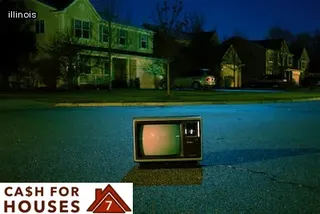
Exploring the Breadcrumb Trail of Squatter's Rights in Illinois can be a difficult and complex task for landlords. Squatter's Rights, also known as Adverse Possession, is a legal principle that allows individuals to acquire the title of a piece of property by living on it for a certain amount of time.
Depending on the state, this period can range from five to twenty-five years. In Illinois, the timeframe is 20 years which means there are specific criteria that must be met before someone can gain ownership of a piece of land.
For instance, the individual must have exclusive possession and control over the property; they must pay all taxes associated with it; and they must maintain an open and notorious possession. To ensure that landlords understand their rights when dealing with potential squatters in Illinois, they should familiarize themselves with related laws and regulations, such as those dealing with adverse possession.
Additionally, landlords should consider consulting an attorney to make sure they are protected against any claims made by people claiming squatter's rights in their properties. Understanding the breadcrumb trail of Squatter's Rights in Illinois is essential for landlords to protect their investments and ensure compliance with applicable laws.
Navigating user accounts and languages is a crucial step for landlords in Illinois to understand the full scope of their rights under the Squatter's Rights law. It is important for landlords to be able to recognize any applicable local laws and regulations that may affect their property.
Additionally, understanding the language and terminology used in legal documents related to tenant's rights can help prevent disputes from arising between landlord and tenant. Furthermore, familiarizing oneself with the different types of user accounts available for tenants, such as joint tenancy, tenancy-in-common or subleasing, can help ensure that all parties are aware of their respective roles and responsibilities prior to signing any documents.
By taking the time to understand these concepts, landlords can better protect themselves from any potential issues when it comes to Squatter's Rights in Illinois.

Tenants in Illinois have the right to stay in their homes even if they can't pay rent, which is known as squatter's rights. While this is an important tenant protection, it also brings challenges for landlords.
Landlords must understand how to navigate these situations and take appropriate legal action when necessary. Online reviews and ratings can provide valuable feedback from other landlords about local laws and regulations regarding squatters' rights, as well as advice on how to protect yourself from potential legal issues.
Additionally, knowledgeable legal professionals can offer insight into the nuances of local laws that may impact the management of a rental property with squatters. Understanding your rights and obligations as a landlord under applicable state laws will help you make informed decisions when it comes to managing tenants who may be claiming squatter's rights in Illinois.
For those interested in exploring the squatter's rights in Illinois, there are several resources available. The Illinois Legal Aid website provides a comprehensive overview of the rights and obligations landlords have when dealing with squatters, as well as information on how to remove them from the property.
Additionally, the Chicago Tenants' Rights Handbook contains an extensive section detailing the legalities of tenant and landlord relationships applicable to squatting. It is important to remember that local laws may vary, so researching your specific city or town's laws is essential when understanding your rights and responsibilities under these circumstances.
Finally, speaking with a lawyer specializing in landlord-tenant law can provide invaluable advice if you find yourself dealing with this issue.
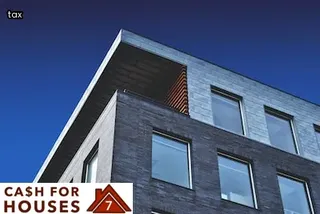
In Illinois, squatters have certain rights that must be taken into consideration by landlords. A squatter is defined as an individual who has occupied a property without the permission of the owner or tenant.
It is important to note that the laws surrounding squatters are complex, and any landlord considering evicting a squatter should consult with an attorney. When it comes to establishing occupancy, squatters may be considered tenants if they have paid rent, have made improvements to the property, or have resided there for a significant period of time.
Furthermore, in Illinois, if a squatter has been living on the premises for more than seven years continuously then they may gain possession of the property through adverse possession. This process requires that the squatter prove that they have maintained exclusive control over the property and paid all taxes during this period of time.
Additionally, local municipalities may also grant legal status to squatters based on certain conditions such as payment of rent or proof of occupancy through utility bills. Ultimately, it is important for landlords to understand what rights a squatter may possess in order to ensure their own legal protection when dealing with these individuals.
In Illinois, landlords should be aware of the concept of “squatter’s rights.” Under this concept, a squatter may acquire legal ownership of a property if they occupy it for a certain period of time.
This is typically referred to as adverse possession. While squatters do have some rights in Illinois, landlords must take steps to protect their properties from illegal occupancy.
In order to prevent potential squatters from occupying the property, landlords must be diligent about posting notices that clearly state that the property is not available for occupancy. Furthermore, landlords should regularly inspect the property and take action if someone has taken up residence without permission.
If a squatter does gain legal possession of the property due to adverse possession, a landlord can challenge the claim in court and reclaim ownership if successful. It's important for landlords in Illinois to understand what rights squatters have and how best to protect their properties from illegal occupancy.
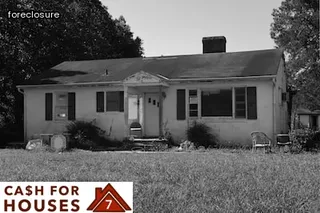
In April 2019, the Illinois legislature passed a new law that gives squatters certain rights. Squatters are defined as persons who occupy property without the owner's consent and for no monetary compensation.
This new law permits certain rights to squatters in certain circumstances, including rights to notice before eviction and the right to remain on the premises for up to seven days after receiving notice of eviction. Landlords should be aware that these new squatter laws protect some of the rights of individuals living on their properties without permission and should familiarize themselves with the specifics of this new legislation before attempting any evictions.
Additionally, landlords should be sure to provide proper notification when evicting a squatter, as failure to do so can result in legal repercussions. By understanding this new law, landlords can better ensure they are following proper procedures when evicting a squatter from their property.
Squatters' rights, also known as adverse possession, is a legal term used to describe a situation in which an individual gains ownership of land without the permission or knowledge of the current owner. In Illinois, squatters can gain legal title to land if they have been living on it and making improvements to it for a specified length of time.
Landlords in Illinois should be aware of how this law works, so they can protect their property from potential squatters. The law states that in order for a squatter to gain title to the land they must have been living on it and using it openly and notoriously for at least seven years.
This means that the squatter must have taken steps such as paying taxes on the property, making repairs to it, or having utility services connected. If these criteria are met, then after seven years the squatter may be able to take possession of the land legally.
Landlords in Illinois should understand these rules and take steps to ensure that their property is not being used by squatters without their permission.
The highest priority when it comes to understanding the concept of squatters rights in Illinois is to know what is the shortest time for them to take effect. In this state, squatters can establish legal rights over a property after living there for 7 years or more.
This is known as the "adverse possession" rule and applies if the squatter open, notorious and exclusive occupation of the property without permission from the owner. To prevent any claims or disputes, landlords should be aware of this law and ensure that they do not allow any unauthorized occupants on their properties.
There are also other important considerations such as payment or compensation for improvements made by the squatter which must be taken into account when assessing how long a person has stayed in a rental property. Ultimately, understanding the concept of squatters rights and its related laws is essential for all landlords in Illinois.